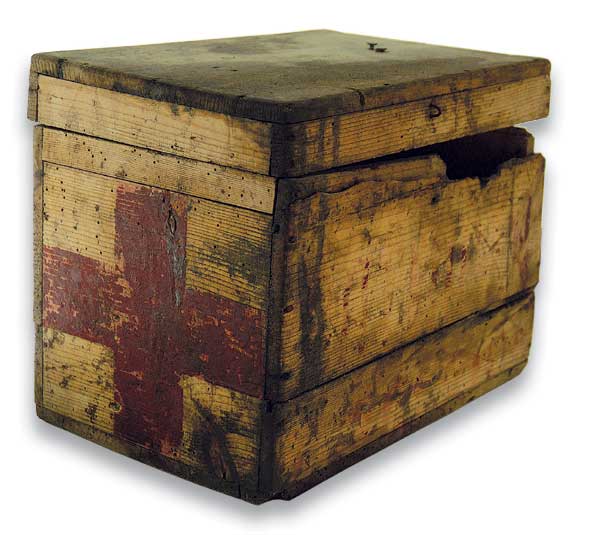1 April 1990
To the sick and hospital staff in a Hospital of the Daughters of Saint Camillus
To the sick and the hospital staff, during a pastoral visit to the Hospital run by the Daughters of Saint Camillus in Acqua Bullicante.
1.We are now close to the days in which we celebrate the greatest mysteries of our redemption. I wanted to come to you with Easter in sight to bring you my personal greetings and my blessing.
My greetings to the hospital director and many thanks to him for the noble words with which he welcomed me in the name of all and warm greetings likewise to the Cardinal Vicar, to the Delegate for religious assistance to the hospitals of Rome, Bishop Brandolini, to the doctors, to the paramedical, auxiliary, administrative and technical personnel.
I greet in particular the dear sick, guests of this House of Care, their relatives and friends and all those who devote themselves to their assistance.
In these last days of the Lenten journey which prepares us for the Pasch of the Lord, the Church’s liturgy, like in a crescendo of a great symphony, intensifies its messages which aim at helping us discover the meaning and the significance of the event which we are about to re-live. Today it presents us Jesus proclaiming: “I am the resurrection and the life” (Jn. 11:25)
If there is a place in which these worlds resound with a particular consolation and hope, it is the hospital – every hospital and house of care, and hence also your own. Here, in fact, everything is orientated to the service of life with the intention of restoring to health those who have been struck by illness and returning them to the affection of their loved ones.
2.Although you rightly look forward to the full recovery of your health I would like however to invite you, dear sick people, not to under-value the period you are going through now. It too forms part of the design of Providence.
We all know, through direct experience, that suffering and illness belong to the condition of man, fragile and limited creature that he is. It happens quite often that those who are afflicted by these things yield to the temptation of viewing them as “chastisement” of God and, in consequence, begin to doubt the goodness of God, whom Jesus has revealed to us as a “Father” who always and in spite of everything loves his children.
In a society like today’s, then, which claims to thrive on well-being and on consumerism and where everything is valued on the basis of efficiency and profit, the problem of sickness and of suffering, which cannot be denied, is either “removed” or people think that it can be resolved by relying exclusively on the means offered by advanced modern technology.
All of this constitutes a veritable “challenge” for those who profess to be believers and who have from Revelation, and above all from the Gospel, an answer to welcome into their own lives and to offer to the world as a sign of hope and as a light which gives meaning to existence. This is the “word of the Cross”, which all who work in the world of health and of sickness are called to make their own, to witness to and to announce to others.
3.You sick, especially! The Pope, having come among you today, says to you then: look to Christ crucified and learn from him! Having taken on the human condition totally, he freely willed to bear the burden of human sufferings and, by offering himself to the Father as an innocent victim for us and for our salvation “with loud cries and tears” (Heb. 5:7), he redeemed suffering, transforming it into a gift of love for the redemption of all.
Sickness and suffering certainly are a “limitation” and a “trial”; they can therefore constitute a stumbling-block on the path of life. In the perspective of the Cross, however, they become a moment of growth in faith and an invaluable instrument for our own contribution, in union with Christ, to the fulfilment of the divine plan of salvation.
Dear Patients, Brothers and Sisters, live your experience in this marvellous way! The help of God and the strength that comes from the Spirit Consoler will not be lacking to you. The Pope is with you and prays for you every day. The Church of Rome called to spiritual and pastoral renewal in the Diocesan Synod, is counting on your invaluable contribution of offering and supplication so that it can live its fellowship in a more intense way and devote itself with renewed commitment to a “new evangelization” of the City.
4.The “word of the Cross” has a message for you too, health care workers, who, at various levels and with various responsibilities, perform your service in the hospital. It is actually Jesus Christ who is hidden and revealed in the face and in the flesh, in the hearts and in the minds of those whom you are called to help and care for. When anything is done to one of these least brothers, to the sick who are often lonely and rejected by society, he considers it done to himself (cf. Mt. 25:40).
This requires that you have interior attitudes, words and deeds which are inspired not only by a profound and rich humanity, but by an authentic spirit of faith and of charity.
I know that you are already committed to this delicate and difficult mission. I exhort you nevertheless to grow and progress ever farther in this direction.
I ask of you, and through you of all those who work in the City health-care structures to overcome the temptation of indifference and selfishness and to work above all to humanize hospitals and make them more livable so that the sick person may be cared for in the totality of body and spirit. Work to see that the fundamental rights and values of the human person are recognized and promoted, and above all that of life, from its beginning to its natural end. This requires you to pay attention to the different situations; it demands respectful and patient dialogue, generous love for every human being viewed as an image of God and, for those who are believers, as an “icon” of the suffering Christ.
This requires not only striking human qualities, professional skill and a serious desire to cooperate, but also a profound moral cohesion and a mature awareness of the ethical values which are at stake when life is threatened by sickness and death. We must approach the human being who suffers like “Good Samaritans”, as Jesus did and as he taught all those who wished to be his disciples to do. We must know how to “see” the sufferings of our own brothers and sisters, not “passing them by” in haste or laziness, but making them “neighbours”, standing near them to speak words of consolation and administer the necessary attentions, with acts of service and of love directed to the integral health of the human person.
This is particularly the task of the health-care apostolate, which endeavours to bring about an effective presence of the Church to carry the light of the Gospel and the Lord’s grace, through the sacraments, to those who suffer and those who take care of them, most of all to the family of the sick who are often more exposed to the consequences which suffering entails in human existence.
In this sector too, the Diocesan Pastoral Synod will have to bear fruits of renewal and of greater commitment, in the line of communion and mission.
Dearest Brother and Sisters, these are the “lessons” that come to us from the “message of the
Cross”, from the Paschal mystery of Jesus, which we are preparing to celebrate fully in the coming days. In communion with the whole Church, let us receive them with faith, let us live them with commitment.
Let us learn from Mary, who at the foot of the Cross united her sufferings to those of her Son, thus contributing to the redemption of humanity. Like her and with her let us say our “yes” thus making our suffering or our service to those who suffer a “gift of love”, for the glory of God and the salvation of humankind. Amen
John Paul II









